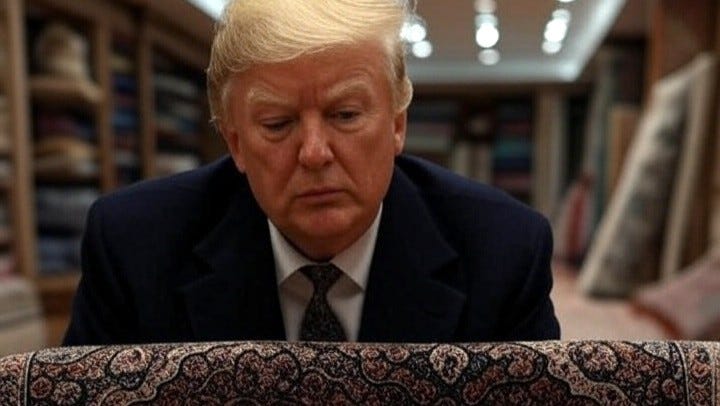Trump Buys A Persian Carpet
Notes on the US-Iran-Israel 'ceasefire'
Donald Trump is popular because he is perceived as strong. If Trump fears looking weak, he will lash out at someone below him in the hierarchy of power. Trump has always lashed out at real or potential partners to make himself look strong, doing the same with electoral opponents, or White House report…



